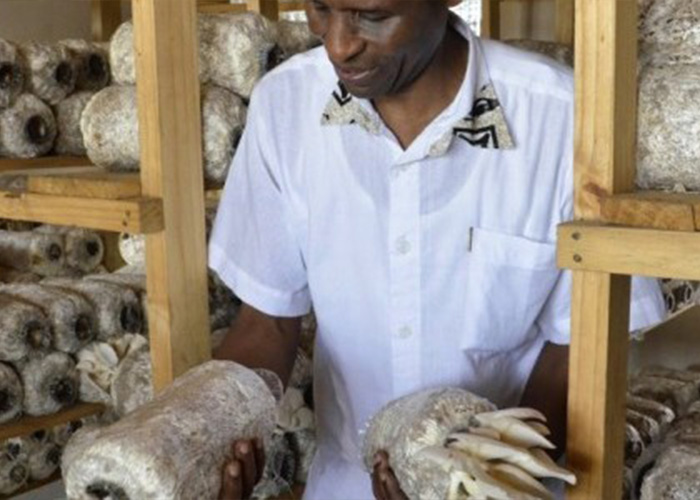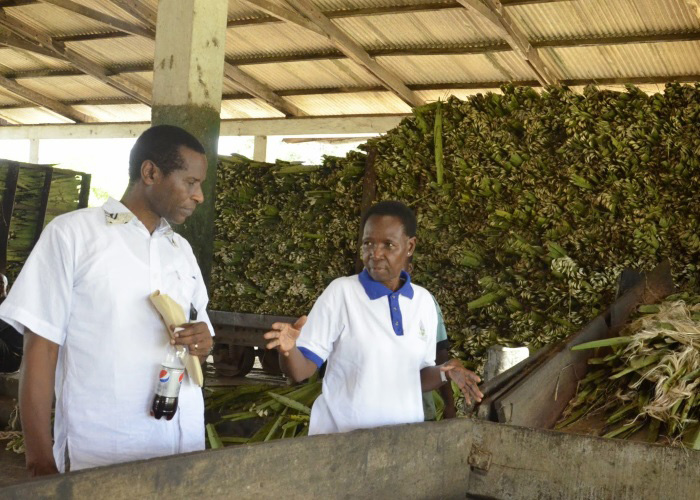UDSM Secures Patent for Groundbreaking Mushroom Cultivation Method
- A Bold Step Towards Research Commercialisation at Mlimani
By Jackson Isdory, CMU
The University of Dar es Salaam (UDSM) has achieved a remarkable milestone in its growing legacy of research excellence and innovation. The institution has officially been awarded a national patent for a pioneering invention titled “A Method for Preparing Sisal Bole as a Substrate for Oyster Mushroom Cultivation.”
Issued under Certificate No. TZ/P/2025/00011 on 27 May 2025, the patent was granted in accordance with Section 28(1) of the Patents (Registration) Act, Cap. 217 R.E. 2002.
The invention is credited to a distinguished team of UDSM scientists, Prof. Anthony Manoni Mshandete, Prof. Amelia Kajumulo Kivaisi, and Prof. Oscar Bakyemilege Kibazohi, renowned researchers for their work in sustainable biotechnology.
Speaking on behalf of the team, Prof. Amelia Kivaisi described the patent as a significant validation of applied science that leverages local resources for national benefit.
“Our method not only advances mushroom cultivation but also adds value to sisal bole, a readily available local waste product, thus contributing to food security and the development of a thriving circular bioeconomy,” said Prof. Kivaisi.
She emphasized that the patented technology introduces an innovative use for sisal bole, traditionally treated as agro-industrial waste. The new method transforms it into a cost-effective and environmentally friendly substrate for oyster mushroom farming, a crop increasingly appreciated for its nutritional, economic, and ecological benefits.
“This innovation reduces waste and promotes sustainable farming practices, with clear potential for improving community nutrition and generating household income,” she added.
A research-intensive university driving national impact
Commenting on the significance of the achievement, Prof. Nelson Boniface, UDSM’s Deputy Vice Chancellor for Research, described the patent as a landmark that aligns squarely with the University’s strategic vision.
“This is a powerful example of the kind of innovation we strive for—practical, impactful, and scalable. It brings us closer to our aspiration of becoming a research-intensive university that delivers real-world solutions,” Prof. Boniface stated.
He called upon UDSM’s academic and research community to draw inspiration from this success and to actively pursue the protection and commercialisation of their innovations.
“The University is fully committed to supporting innovation through patenting, licensing, and market-driven applications. Our Directorate of Innovation and Entrepreneurship, alongside the Directorate of Research, is ready to support researchers throughout this journey,” he noted.
Prof. Boniface underscored that this achievement is not only a victory for the inventors but also a strong indication of UDSM’s broader commitment to transforming research into tangible contributions to national development. Through patenting and strategic industry partnerships, UDSM is advancing the national agenda of industrialisation and inclusive economic growth.
As the University celebrates this important breakthrough, it sends a clear message to its scholarly community: Innovate. Protect. Commercialise. Transforming knowledge into impact is not merely encouraged, it is now the standard.
UDSM congratulates Prof. Mshandete, Prof. Kivaisi, and Prof. Kibazohi on their visionary achievement, and urges all researchers to follow their example as the institution intensifies its mission to turn bold ideas into powerful engines of change.




